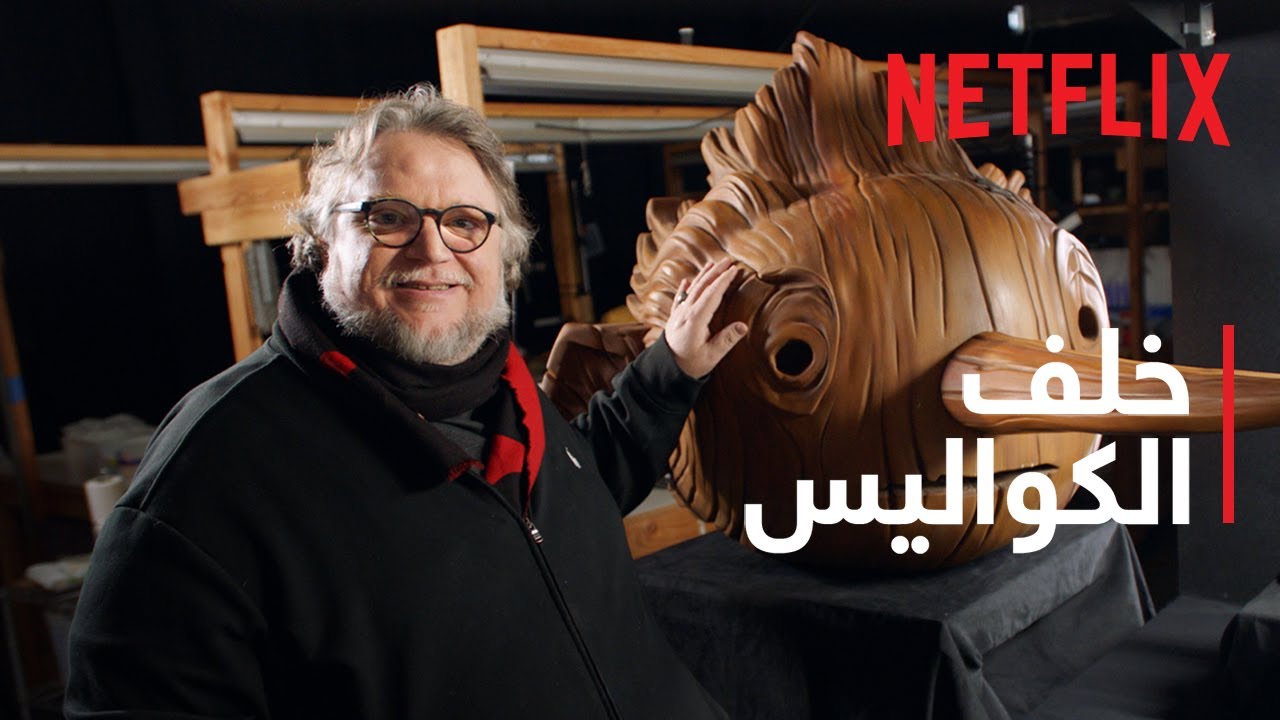Hollywood's Forgotten Film Critic: A Golden Age Rediscovery

Table of Contents
Dive into the fascinating, yet largely unknown, world of Pauline Kael, a pivotal film critic during Hollywood's Golden Age (roughly 1930s-1960s). This article rediscovers her insightful reviews, forgotten influence, and the impact her unique perspective had on shaping cinematic history. We'll explore her life, career highlights, and the enduring legacy she left behind, a legacy often overlooked in modern film discourse. Prepare to meet a forgotten giant of film criticism – or perhaps, a giant whose brilliance is only now being fully appreciated.
The Life and Times of Pauline Kael
Early Life and Influences
Pauline Kael's early life was far from glamorous, shaping her later, often contrarian, critical perspective. Born in San Francisco in 1919, she experienced firsthand the economic hardship of the Great Depression. This exposure to everyday struggles likely informed her keen eye for the social and political undercurrents within films.
- Early writing experience: Kael began writing early, contributing to local publications before moving to New York City.
- Key mentors or influences: While she didn't have formal mentors in the traditional sense, the New Yorker's rigorous standards, which she later met, implicitly served as a kind of mentorship.
- Personal anecdotes: Her experiences with independent and art house cinema profoundly shaped her understanding and appreciation of the medium beyond mainstream Hollywood fare.
Rise to Prominence
Kael's career trajectory was unconventional. She worked as a freelance writer for various publications before landing a significant role reviewing films for The Hudson Review, and subsequently achieving immense influence with her writings for The New Yorker. Her fearless and often provocative style quickly garnered attention, both positive and negative.
- Key publications: The Hudson Review, The New Yorker, Film Quarterly.
- Notable early reviews: Her reviews of films like Bonnie and Clyde and Easy Rider exemplify her ability to dissect both artistic merit and cultural impact.
- Awards and recognition: Though she didn't receive formal critical awards in the same way some of her contemporaries did, her influence and enduring reputation make her a recipient of posthumous critical acclaim and a continual impact on the field.
Unique Critical Style and Perspective
Kael’s critical style was fiercely independent, deeply personal, and unafraid to challenge conventional wisdom. Her writing was characterized by its wit, intelligence, and a strong emotional engagement with the films she reviewed. She wasn't afraid to express strong opinions, often challenging the status quo in film criticism and the perceived "greatness" of certain directors.
- Unique phrasing: Her writing was informal yet elegant, accessible yet intellectually stimulating, using vivid imagery and personal anecdotes to connect with her readers.
- Recurring themes: Themes of gender, class, and power frequently surfaced in her critiques, reflecting her deep social awareness and commitment to a human-centered perspective in analyzing cinema.
- Specific film genres or directors: She championed auteurs like Howard Hawks and Robert Altman while critically dissecting the works of others, showing no fear in challenging establishment viewpoints.
Pauline Kael's Impact on Hollywood's Golden Age (and Beyond)
Influence on Filmmakers
Kael's reviews, while often scathing, were influential. Filmmakers, even those she criticized, paid attention, aware that her opinion held sway over public perception. Her astute observations helped shape the conversations surrounding cinema, often informing the direction of subsequent films and the careers of those involved.
- Specific examples: Directors may have responded to her feedback, consciously or unconsciously, adapting their styles or approaches in response to her incisive observations. While it's difficult to prove direct cause and effect, her influential articles made a lasting impression.
- Evidence of influence: The consistent mention of her name in retrospectives on films from the period demonstrates her presence and impact on the cultural conversations around cinema.
Shaping Public Opinion
Kael's powerful writing wasn't confined to the realm of professional film critics. Her accessibility helped shape public opinion about films, influencing box office success and shifting the narrative around certain movies and genres. Her accessibility made her a cultural figure in the world of cinema.
- Examples of influencing public opinion: Her reviews were widely read and discussed, forming part of the overall cultural conversation around films. This is exemplified by her passionate advocacy for certain films that may have otherwise failed to find mainstream success.
- Impact on box office success: While not always a direct correlation, her positive reviews surely aided in promoting films, increasing ticket sales.
Legacy and Lasting Relevance
Pauline Kael’s impact on film criticism continues to resonate today. Her insightful analyses, passionate engagement with cinema, and fearlessness in expressing her opinions remain a model for contemporary critics.
- Themes that continue to be relevant: Her keen observations about genre, narrative, and the social context of filmmaking remain pertinent in discussions of today’s cinema.
- Comparison to modern critics: While many contemporary critics have adopted her keen eye for detail and socially conscious perspective, few have matched the power of her writing style.
- Resurgence of interest: Her work remains widely read, republished, and discussed, demonstrating the lasting impact of her contribution to cinema scholarship.
Rediscovering the Work of Pauline Kael
Accessibility of her Writings
While much of her writing is scattered across various publications and archives, a significant portion of Pauline Kael's work has been collected into books. These collections offer a comprehensive view of her career and critical perspectives.
- Links to online resources: While many articles are behind paywalls, searching for "Pauline Kael reviews" or specific film titles along with her name will turn up various online resources.
- Information about published collections: Her collected works, including 5001 Nights at the Movies, offer a rich collection of her writing for readers to explore.
- Suggestions for where to find her work: University libraries and online archives are great places to find her work, though the best place is likely in collected books.
Significance of Her Rediscovery
Rediscovering Pauline Kael is vital to the understanding of film history and criticism. Her bold voice and unique perspectives represent a crucial element of cinematic discourse, one often overlooked in favor of more traditionally celebrated critics.
- The value of recovering lost voices: Reclaiming Kael’s legacy reminds us of the importance of diverse perspectives and the ongoing need to reassess the history of cinema.
- The importance of diverse perspectives: Her unique style, fierce independence, and personal engagement enrich the field of film criticism, demonstrating the value of engaging with a film beyond mere technical analysis.
- The impact of her work on film history: Her influence extended beyond the immediate effect of her reviews. The cultural conversation itself changed with the arrival of her bold and often uncompromising perspective.
Conclusion
This rediscovery of Pauline Kael highlights the often-unseen influence of film critics in shaping Hollywood's Golden Age and beyond. Her unique perspective and insightful critiques left an indelible mark on the cinematic landscape, a legacy too often overlooked. Her work serves as a reminder of the power of insightful criticism and the importance of preserving and revisiting the voices that helped define the art of filmmaking. Delve deeper into the world of Hollywood's forgotten film critics! Explore the archives, seek out their writings, and rediscover the rich history of cinematic discourse. Learn more about the invaluable contributions of figures like Pauline Kael and help ensure their legacy continues to inspire future generations of film lovers and critics. Rediscover the power of Hollywood's forgotten film critics—and the impact their words had on the world of film.

Featured Posts
-
 Le Week End Sur Europe 1 Soir Avec Aurelien Veron Et Laurent Jacobelli
May 30, 2025
Le Week End Sur Europe 1 Soir Avec Aurelien Veron Et Laurent Jacobelli
May 30, 2025 -
 Presidente Da Fecomercio Defende Cidadania Baiana Para Ronaldo Caiado
May 30, 2025
Presidente Da Fecomercio Defende Cidadania Baiana Para Ronaldo Caiado
May 30, 2025 -
 Odigos Tiletheasis Gia Tin Kyriaki 11 5
May 30, 2025
Odigos Tiletheasis Gia Tin Kyriaki 11 5
May 30, 2025 -
 Steffi Grafs Neue Sportleidenschaft Ein Blick Hinter Die Kulissen Ihrer Ehe Mit Andre Agassi
May 30, 2025
Steffi Grafs Neue Sportleidenschaft Ein Blick Hinter Die Kulissen Ihrer Ehe Mit Andre Agassi
May 30, 2025 -
 Injaz Ryady Dyl Twrw Yusjl Asmh Fy Tarykh Jyrw Iytalya
May 30, 2025
Injaz Ryady Dyl Twrw Yusjl Asmh Fy Tarykh Jyrw Iytalya
May 30, 2025
